Evolution of the Report Cards in Brisbane: Part Two
Heath Kelsey · | Environmental Report Cards | 
The report cards developed from each group have common characteristics, but focus on different strengths. The Great Barrier Reef (GBR) group seem to be emphasizing improvements on the technical and visual aspects of the report card data analysis and indicators, target achievement data, and visualizations, while the IAN group is focusing more on the process, stakeholder engagement, and holistic approaches to the report card scope.
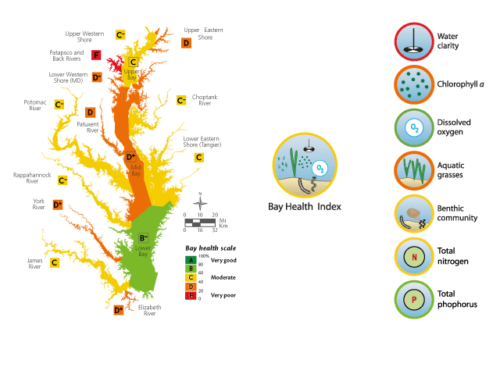
I found myself musing a bit about the evolution analogy in Report Cards. The report cards in Australia and the US seem to be following processes similar to the founder effect and genetic drift concepts in evolutionary biology. Report cards on both continents had the same ancestor, in this case Dr. Bill Dennison, and so they started with similar report card traits, like transparency, geographic specificity, focus on ecological health, habitat and water quality, and visual communication of results. Over time however, creators of the report cards responded to slightly different selective pressures, like defined pollutant reduction targets by industry in Australia, over a much larger area, and more broadly applied reduction targets for nutrients and sediments in the smaller region of the Chesapeake Bay watershed. This resulted in slightly different areas of emphasis for the report cards, although the basic components are still similar.
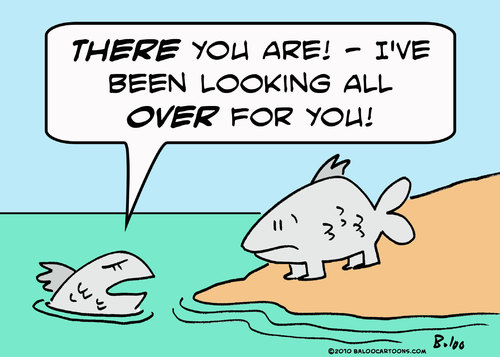
More recent pressures seem to be leading to perhaps more divergent paths for the two sets of report cards: scientists who produce the Great Barrier Reef report cards respond to the desire for better coordination to be more consistent with the reef protection plan, called the Reef Plan 2050, a "top-down" selective pressure. The report cards IAN have been involved with recently seem to be going in a slightly different direction, responding to the need for capacity building in local teams and communities, and the idea that the report card can be seen as a powerful tool for community development. This is leading IAN towards a transdisciplinary approach, with a focus on co-design and co-creation with stakeholders, which will likely lead to less cohesion in the report card products, but is designed to promote local buy-in, create report cards with relevance to regional needs, and develop a shared vision for the systems in which they are created.
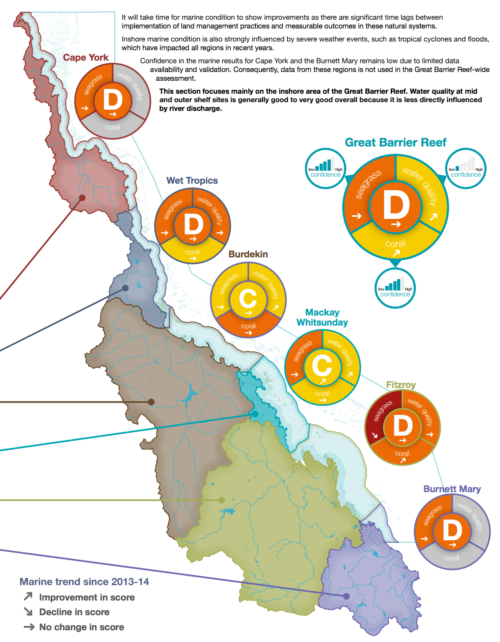
Three concepts in transdisciplinary science (a concept that seems to becoming its own discipline!) that we've recently been exploring are the concepts of salience, credibility, and legitimacy (Cash et al). Salience is the concept that the research, project or application is relevant to the needs of users. Credibility is the concept that the producers of the research, project, or application have expertise in the relevant area, and legitimacy is the concept that the effort included the right stakeholders in the design and implementation phases. Failure to achieve a sufficient standard in any one of these areas could easily ruin the project, while advances in these concepts can increase the perception of the others.
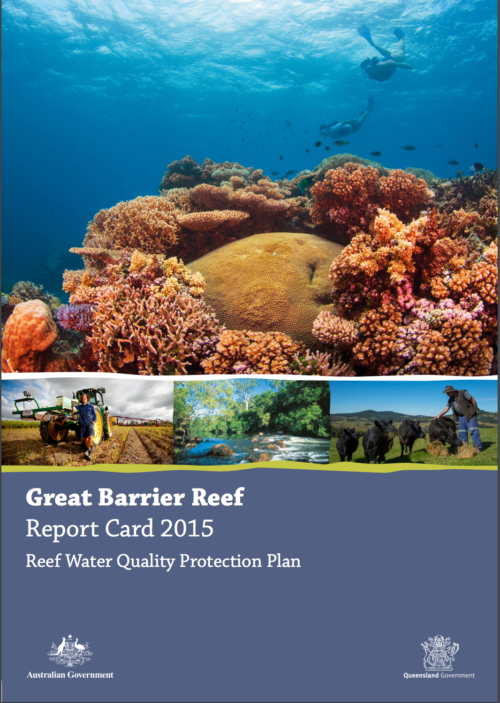
Although the report cards on two continents may be moving in slightly different directions, the advances that both teams are creating a set of tools that are creating the possibility for big benefits. By combining our efforts through continued cross-fertilization, we can provide report cards that are:
- More relevant than ever - a focus on social, cultural economic ideas improves salience
- More robust than ever - a deliberative choice of indicators, with emphasis on proper analysis techniques increases credibility.
- More impactful than ever - deep engagement from all sectors, co-creation, focusing on the future, creates legitimacy of the final product and process.
I think advances in these areas will create the opportunity for report cards to be used as a powerful tool for community development in many areas. We seem to be seeing this already, as we are becoming more engaged in the community development than ever, with our partners at WWF and the Healthy Rivers for All Initiative. Report Cards are a tool to be used in capacity development and empowerment, democratizing resource management for entire communities.
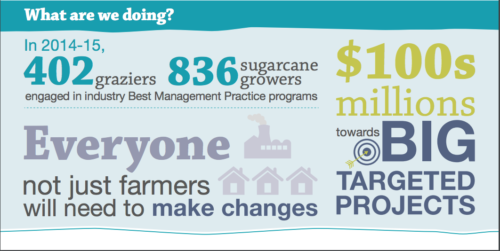
Reference: David Cash, William C. Clark, Frank Alcock, Nancy M. Dickson, Noelle Eckley, Jill Jäger. Salience, Credibility, Legitimacy and Boundaries: Linking Research, Assessment and Decision Making. KSG Working Papers Series, 2003.
About the author
Heath Kelsey

Heath Kelsey has been with IAN since 2009, as a Science Integrator, Program Manager, and as Director since 2019. His work focuses on helping communities become more engaged in socio-environmental decision making. He has over 15-years of experience in stakeholder engagement, environmental and public health assessment, indicator development, and science communication. He has led numerous ecosystem health and socio-environmental health report card projects globally, in Australia, India, the South Pacific, Africa, and throughout the US. Dr. Kelsey received his MSPH (2000) and PhD (2006) from The University of South Carolina Arnold School of Public Health. He is a graduate of St Mary’s College of Maryland (1988), and was a Peace Corps Volunteer in Papua New Guinea from 1995-1998.